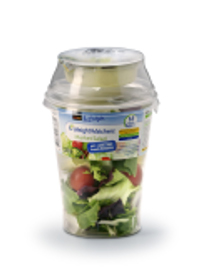
by Pan Demetrakakes
Chief Editor
The U.S. House of Representatives has passed a sweeping food-safety reform bill that will give the Food and Drug Administration (FDA) more power over inspection, enforcement and recalls.
The Food Safety Enhancement Act passed the House last week by a vote of 283 to 182. President Barack Obama has already promised to sign the legislation if and when it’s passed by the Senate, which probably will consider it this fall. Obama called the bill “a major step forward in modernizing our food safety system.”
The act will require more frequent inspections of food plants, as often as every six to 12 months for at-risk locations. (Currently, inspections are held as infrequently as every five years.) It requires electronic record-keeping, with records provided to the FDA. It also requires food manufacturers to devise and implement customized HACCP (Hazard Analysis of Critical Control Points) plans to identify and mitigate safety risks. The bill also gives FDA the authority to mandate recalls in certain situations, and provides tougher penalties for negligence.
The House Democratic leadership tried to pass the bill last Thursday under “suspension calendar” rules, but it failed to garner the necessary two-thirds majority. The next day, the bill passed under normal procedures.
Some industry groups, notably the United Fresh Produce Association, have applauded the bill, but some farmers and others are grumbling over the costs. An allocation of $3.5 billion will pay for the bill’s requirements, and $500 million of that will come from a $500 annual fee on all food processors.
TOP DEVELOPMENTS
Don’t mix PLA with PET, NAPCOR says
A leading trade association for plastics recyclers has made its most explicit denunciation to date against trying to handle plant-based and petroleum-based containers in the same recycling stream. The National Association for PET Container Resources (NAPCOR) says that polylactic acid (PLA) cannot be mixed with polyethylene terephthalate (PET) because the cost of separation is too high, and not enough of a market exists for the recovered PLA. “When all is said and done, the volumes of PLA that can be separated out at this time are relatively low and do not make up the critical mass required for a viable reclamation business model,” Dennis Sabourin, executive director of NAPCOR, said in a statement.
Frito-Lay adds more chips back to bag
PepsiCo unit Frito-Lay, the leading U.S. marketer of savory snacks, is putting more chips back in its bags now that ingredient prices have stabilized. The snack giant, reversing cuts made last year, now has boosted the content on certain larger SKUs of Doritos, Cheetos and Fritos by about 20%, while keeping prices the same. Some regional snack processors have followed suit. Variations in product amounts are less liable to be noticed than price changes, according to conventional wisdom.
Earthbound Farms using rPET clamshells
Earthbound Farms, one of the leading marketers of organic fresh produce, has switched to 100% post-consumer recycled polyethylene terephthalate (rPET) for its clamshell packaging. The label on the front panel features the message “Package Made From Recycled Bottles!” in the upper left corner, accompanied by a logo of chasing arrows around a globe icon. Earthbound Farms estimates that its rPET clamshells will divert 1.3 million pounds of waste from landfills.
A leading trade association for plastics recyclers has made its most explicit denunciation to date against trying to handle plant-based and petroleum-based containers in the same recycling stream. The National Association for PET Container Resources (NAPCOR) says that polylactic acid (PLA) cannot be mixed with polyethylene terephthalate (PET) because the cost of separation is too high, and not enough of a market exists for the recovered PLA. “When all is said and done, the volumes of PLA that can be separated out at this time are relatively low and do not make up the critical mass required for a viable reclamation business model,” Dennis Sabourin, executive director of NAPCOR, said in a statement.
Frito-Lay adds more chips back to bag
PepsiCo unit Frito-Lay, the leading U.S. marketer of savory snacks, is putting more chips back in its bags now that ingredient prices have stabilized. The snack giant, reversing cuts made last year, now has boosted the content on certain larger SKUs of Doritos, Cheetos and Fritos by about 20%, while keeping prices the same. Some regional snack processors have followed suit. Variations in product amounts are less liable to be noticed than price changes, according to conventional wisdom.
Earthbound Farms using rPET clamshells
Earthbound Farms, one of the leading marketers of organic fresh produce, has switched to 100% post-consumer recycled polyethylene terephthalate (rPET) for its clamshell packaging. The label on the front panel features the message “Package Made From Recycled Bottles!” in the upper left corner, accompanied by a logo of chasing arrows around a globe icon. Earthbound Farms estimates that its rPET clamshells will divert 1.3 million pounds of waste from landfills.

NEW PACKAGES
Candy bar wrapper mimics currencyA specialty chocolatier has put a new candy bar into a package that’s sure to get attention in rough economic times. The London Mint, 1.76 ounces of mint chocolate from Harry London Chocolates, North Canton, Ohio, is flowrapped to look like U.S. currency. The gravure-printed plastic wrapper has elements of a U.S. $100 bill, including a portrait of Benjamin Franklin, but includes various offbeat touches, such as substituting “The Chocolate Gourmets of America” for “The United States of America.” The London Mint has a retail price of $2.99.

A salad marketed in Europe under the Weight Watchers label includes dressing and utensils in a single-serve cup. Market Salad, produced in Liechtenstein by Hilcona and distributed by Swiss supermarket chain Coop, comes in a polypropylene cup with a fitted upper chamber. Inside this chamber is a small, foil-lidded cup of dressing and a disassembled fork and spoon. The package is fromGreiner Packaging.
